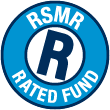


UK All Companies

JOHCM was launched in 1993 and today is majority owned by the people who work in the business. The fund is primarily invested in securities of UK companies. There are no constraints in terms of sectors or stocks. At all times at least two thirds of the fund’s assets will be invested in equity securities of companies domiciled or exercising the predominant part of their economic activity in the United Kingdom. Up to 10% of the value of the fund may be invested in non-UK companies. The fund is an unconstrained strategy that is managed in a benchmark insensitive way so does not have a tracking error target.
The team research structural change to identify tailwinds which include demographic, political, economic, and societal changes. This could include the impact of ageing populations, urbanisation, changing environmental policies, an industry trend to outsourcing or a growing digital economy. In essence, the team are looking for growth that is not dependent on a short-term economic cycle. However, not every stock owned in the portfolio is linked directly to a theme.
The quality control element of the process reduces the list to 50-60 names in the UK which are businesses with a strong competitive position having pricing power, market share, and favourable industry structure. Management must have a good record on capital allocation and a willingness to invest. Management must implement appropriate ESG and sustainability related policies in line with the team’s proprietary sustainability framework. Financial strength analysis, as well as looking at debt, takes into account off balance sheet and pension liabilities together with cash conversion.
Valuation is based on a conservative estimate of discounted future cash flows and considers both the rate and duration of growth, sustainability of margins, and level of capital investment needed to generate growth. Valuation is a combination of art and science. The team use a consistent and constant cost of equity to allow comparisons across the whole market and through a cycle. They do not use sector or market relative valuations.
For each company there is a detailed investment research document looking at its activities and growth drivers, cost analysis, industry and competitive analysis, balance sheet strength and analysis of accounting quality. An investment thesis shows the key reasons for holding each company and clear sell triggers. There is a consistent investment model for every stock with information from company reports adjusted to allow accurate comparisons to be made, which involves company specific adjustments at times.
The proprietary sustainability framework looks for value creative capital allocation with appropriate financial leverage and profits which sustainably convert into cash. Organic growth is typically favoured over acquisition growth. The managers look for remuneration metrics which will drive long-term thinking, and diversity and experience of board and company. The team also look for social contracts with environmental policies to improve the environment they operate in and reduce carbon emissions. Companies need to target net zero emissions by 2050 or sooner. There should be policies to improve social impact on all stakeholders.
The team score companies according to whether they: achieve standards, partially achieve standards, or are failing to meet standards. For the latter category, the team commit to engaging for a period of up to 18 months to allow the company to improve.
The strategy has a long record of engagement with a focus on governance and the team keep notes on every portfolio company meeting including ESG engagement.
Portfolio construction is completely independent of index considerations with each holding viewed as a positive investment in its own right and judged against cash. There is a focus on what is owned rather than not owned. Stocks are only included in the portfolio based on their capacity to make money for investors. There is a high degree of revenue visibility when looking at holdings, and cyclicals must have long-term structural growth opportunities and a strong balance sheet.
There is a strict sell discipline for stocks breaching quality or valuation controls and the fund is prepared to cut its losers. The mandate has the ability to hold cash until suitable investment opportunities occur.
This is an unconstrained mandate that has been run in the same style since inception. Even with the introduction of a new lead manager in 2017 continuity of process was maintained. The fund may have a stronger defensive approach than other core UK funds and can underperform in extended bull market phases but will likely outperform in declining or volatile market periods.
This would be a core fund which investors need to view over the longer term as a more defensive holding that can offer a less correlated option to UK equity investors.
The portfolio is a higher conviction concentrated portfolio of quality companies with strong business franchises consisting of typically 25-40 stocks and is broadly equally weighted. Cash is used to maintain the absolute value of the fund for periods when they feel they need to protect it and this can often lead to a portfolio that looks very different to the peer group. We believe this is a useful alternative to other core UK equity funds if investors are prepared to be patient and accept performance differentials to the peer group in periods when equity markets are driven by momentum factors.
Important Notice
This document is aimed at Investment Professionals only and should not be relied upon by Private Investors. Our comments and opinion are intended as general information only and do not constitute advice or recommendation. Information is sourced directly from fund managers and websites. Therefore, this information is as current as is available at the time of production.
Rayner Spencer Mills Research Limited is a limited company registered in England and Wales under Company. Registration Number 5227656. Registered Office: Number 20, Ryefield Business Park, Belton Road, Silsden, BD20 0EE. RSMR is a registered trademark.